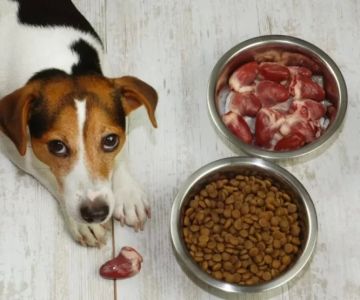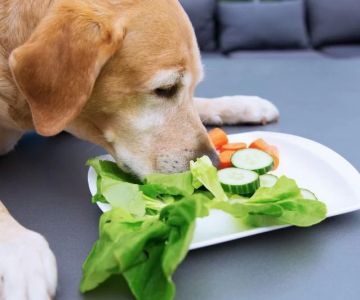1- Introduction: The Dangers of Chili Peppers for Dogs
As a dog owner, you may have wondered whether it's safe for your dog to eat chili peppers or spicy foods. While dogs are known for their ability to enjoy a variety of foods, spicy and hot ingredients like chili peppers can have adverse effects on their health. In this article, we'll discuss the safety of chili peppers for dogs, the potential risks, and what you should do if your dog accidentally consumes them. If you're curious about whether chili peppers are safe for your furry friend, keep reading!
2- Can Dogs Eat Chili Peppers?
The short answer is no, dogs should not eat chili peppers. While small amounts of chili peppers might not cause immediate harm, these spicy foods can lead to digestive issues and discomfort for your dog. Here's why:
2.1- Spicy Foods Can Upset Your Dog's Stomach
Chili peppers contain capsaicin, the compound that makes them spicy. This compound can irritate a dog’s gastrointestinal system, causing stomach upset, diarrhea, vomiting, and excessive drooling. While some dogs may tolerate small amounts of spicy food, it’s not worth the risk of gastrointestinal distress or discomfort.
2.2- Risk of Toxicity and Poisoning
In large quantities, chili peppers can be toxic to dogs. Capsaicin can cause a burning sensation in a dog's mouth and digestive system, leading to pain and discomfort. Dogs may also experience irritation in their eyes and on their skin if they come into contact with chili peppers. In rare cases, large amounts of capsaicin may result in more severe symptoms such as rapid heart rate, decreased blood pressure, and respiratory distress.
2.3- Dogs Can't Handle Spicy Foods Like Humans
Unlike humans, dogs don’t have the same tolerance for spicy foods. While you may enjoy the heat of chili peppers, your dog’s taste buds and digestive system are not designed to handle such intense flavors. This can lead to digestive distress and other unpleasant reactions.
3- What to Do If Your Dog Eats Chili Peppers
If your dog has accidentally eaten chili peppers or spicy food, it's important to monitor them closely. Here are a few steps you can take to manage the situation:
3.1- Monitor for Symptoms
If your dog consumes chili peppers, keep an eye out for symptoms such as drooling, vomiting, diarrhea, and abdominal pain. Some dogs may also show signs of distress, like panting or pacing. If you notice any of these symptoms, it’s important to contact your veterinarian immediately.
3.2- Keep Your Dog Hydrated
Spicy foods like chili peppers can cause dehydration in dogs, especially if they experience diarrhea or vomiting. Ensure your dog has access to plenty of fresh water to stay hydrated. If your dog is unwilling to drink, you can offer ice cubes or ice chips to encourage fluid intake.
3.3- Visit the Veterinarian
If your dog’s symptoms persist or if they consumed a large amount of chili peppers, it’s best to visit your veterinarian. Your vet can assess your dog’s condition and provide treatment if necessary. They may recommend medications to soothe your dog’s digestive system or to treat any potential toxicity from the chili peppers.
4- Preventing Accidental Consumption of Chili Peppers
Preventing your dog from eating chili peppers and other spicy foods is the best way to ensure their safety. Here are some tips to keep your dog safe:
4.1- Keep Food Out of Reach
Make sure that chili peppers and other spicy foods are kept out of reach of your dog. Dogs are naturally curious, and they may try to sample whatever is left unattended. Always store food securely and dispose of scraps safely.
4.2- Educate Family and Friends
If you have family members or guests who may not be aware of the risks of chili peppers for dogs, make sure to inform them. Encourage everyone to avoid feeding your dog human food, especially spicy items that could harm their health.
4.3- Offer Safe Dog-Friendly Treats
Instead of giving your dog chili peppers or spicy foods, offer them dog-friendly treats that are both safe and tasty. Many pet stores offer a variety of treats designed specifically for dogs, ensuring they get the flavor and nutrition they need without the risk of harmful ingredients.
5- Conclusion: Safe Eating Habits for Your Dog
While chili peppers may add spice to your meals, they are not suitable for your dog. Feeding spicy foods can cause digestive distress and potentially lead to more serious health problems. Always keep chili peppers and other spicy foods out of reach of your pets, and if your dog has accidentally consumed something harmful, take immediate action to keep them safe. For expert advice and care, visit Hidden Brook Veterinary for the best resources and guidance for your pet’s health.












